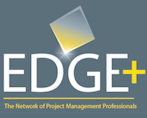Christmas is special, in part, because it only happens once a year. Building on that concept, Mark Horstman, co-founder of Manager Tools, coined the “Christmas rule”:
“If you do it rarely, and it’s important, you’re likely to underperform.”
Christmas is a major activity for many of us. Since we don’t look for decorations and cook a turkey every day, it’s no wonder that we struggle with planning Christmas. Planning projects have just the same difficulty.
The Christmas rule means we can’t expect to be highly proficient at tasks that we do infrequently. That’s why it feels so difficult when we move to a new house (but moving companies do it each and every day with a lot less stress).
Consider the case of a project manager who works on three to five large projects a year. She may have a major planning session in December or January and then move on into project execution. Many of us are planning our projects (and career objectives!) for next year right now. If your planning abilities are out of practice, use these tips to reinforce your planning capabilities.
-
PLAN YOUR RELATIONSHIP WITH THE PROJECT SPONSOR.
Many projects fail as a result of disengaged sponsors. You can minimize that cause of project failure by writing a one page plan for how you will build a relationship with the sponsor. Start the relationship by determining what the sponsor values.
-
PLAN TRAINING AND DEVELOPMENT FOR THE PROJECT TEAM.
The productivity of your project team is a critical factor in project success. In reviewing your project team, ask yourself a question – do they have the skills to perform the work? If the answer is no, consider whether you can provide training and development opportunities to the project team. Professionals with the opportunity to grow their skills tend to be more engaged in their work.
-
CREATE A PLAN FOR HOW YOU WILL ACTUALLY MANAGE CHANGE REQUESTS.
In some circles, change requests have a bad rap. In the eyes of some stakeholders, change requests represent bureaucracy and inflexibility. Yet we all know that change requests are essential to maintain control over the project.
Tell your stakeholders that all change requests will be evaluated and receive an initial response within a set time period such as five business days (or at every project status meeting).
-
PLAN TO REVIEW THE LESSONS LEARNED DATABASE FOR INSIGHTS.
Well managed projects document lessons learned as part of the closing process. Assuming your organization has such an archive, what was the last time you accessed the database? If you’re like many busy project managers, you may not remember. Now that you have some time for planning, make a note to review the lessons learned database.
For added insight, pick up the phone and contact a project manager who documented a lesson. You will gain greater insight especially if you open the call by saying that you’re seeking to learn from their experience.
-
BUILD A STANDING AGENDA TEMPLATE FOR PROJECT MEETINGS.
Many projects have a weekly status meeting to review the progress and problems of the project. The early planning stage of a project is a perfect time to create a template to run these meetings effectively. Once you have a template in hand, running these meetings becomes much easier.
-
PLAN TEAM BUILDING ACTIVITIES FOR THE START OF THE PROJECT.
Assume you are bringing together a team for a twelve month project and the team members have never met each other. It is your responsibility as the project member to set the tone. By planning one or two team building activities early in the project, you will help the team members get to know each other.
-
PLAN TEAM RECOGNITION AND REWARDS FOR THE PROJECT.
Another planning task relating to people? Yes! People matter to the success of your project, more than any other factor. That’s why you can’t leave rewards and recognition to chance.
What does your reward and recognition plan include? If possible, assign part of the project budget to the occasional lunch or dinner (especially if you expect asking the project team to work overtime!). What if you can’t get budget for rewards?
Make a note to provide regular feedback and praise each project team member when they perform well.
Proactively planning and executing rewards and recognition will set you aside from other project managers who exclusively focus on deliverable completion.
Written by Bruce Harpham


